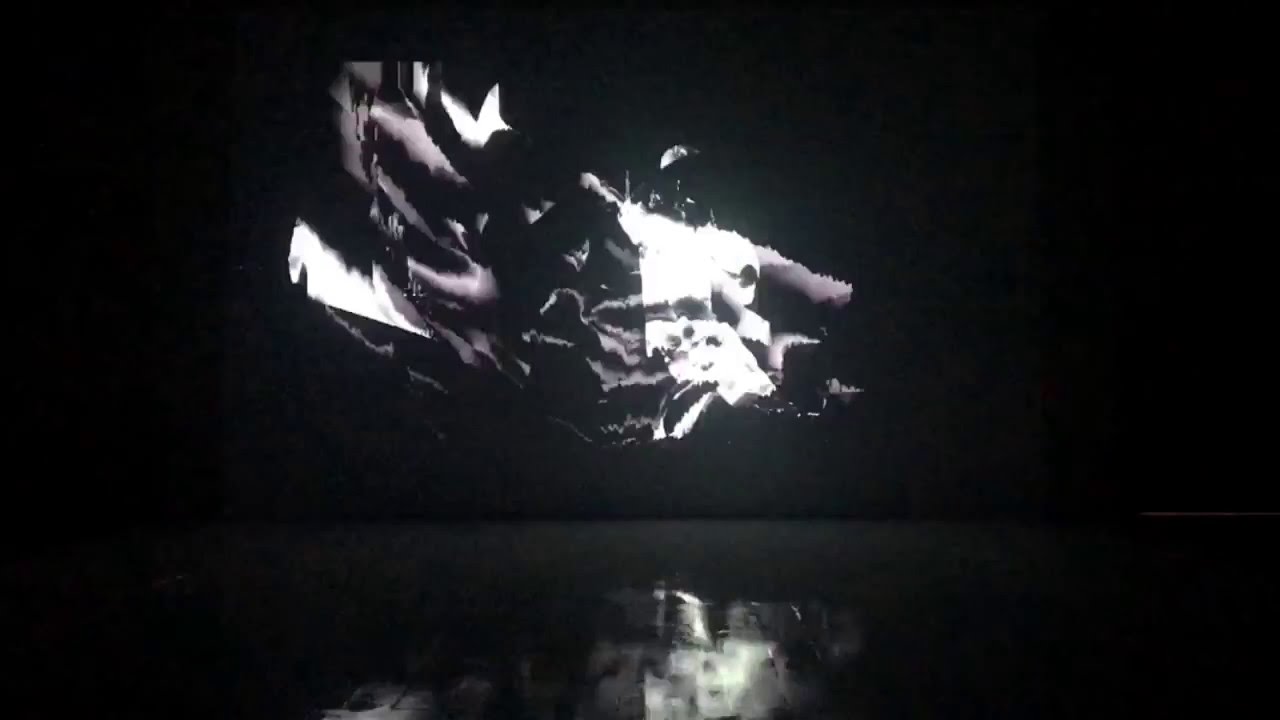
9 Labels That Define The Underground Club Sound In China
Genome6.66Mbp
Genome6.66Mbp is the newest electronic music label from Shanghai, which is China’s most fashion-forward and future-facing megalopolis. It was born after its members met at the legendary underground club The Shelter, which closed its doors at the end of last year. Peopled by a motley crew of 20-something producers, DJs and fashion mavens, Genome is as much an outgrowth of a specific time and place—the financial powerhouse of Shanghai in an era when China is rising as an economically dominant steward of the future—as it is an expression of the identity-fracturing influence of the internet and social media ubiquity.
“Most of the artists we work with, we’ve only met online, so the internet has been a big part of Genome in that way,” says Tavi Lee, who met fellow co-founder Kilo Vee after seeing him DJ at The Shelter. “Genome isn’t really about ‘internet culture’ though, even if we’re enmeshed in it as most young people are.” Their visual aesthetic, largely designed by Tavi, evokes a sort of robot-nightmare vibe, and their sound displays an affinity with other purveyors of dark sounds in big cities, like Swan Meat from Chicago and Zurvolt from Mexico City. As a label, Genome started off strong with a wide-ranging compilation of experimental and bass-heavy club tracks, and they have an upcoming EP by Shanghai producer MiraiSenshi, a spate of underground events and further releases planned for 2017.
Prajnasonic
By contrast, Beijing’s newest underground electronic music label, Prajnasonic, has a cool, collected, old-school feel. Its core members—iimmune, Far Infinity, Punx and VU—share a predilection for minimal techno blended with high technology, showing their twin interests in music and code. They decided to start the label after a club night at Beijing club Dada. “We were talking about the music scene in Berlin,” recalls Far Infinity, aka Liu Yiwei. “On Resident Advisor there are a dozen Berlin labels under every letter from A to Z, while there are very few labels, producers and DJs on the list for China.”
Prajnasonic’s goal is to bridge the gap between mainstream club sounds and purely experimental electronic music; they namecheck Raster-Noton and Stroboscopic Artefacts’ “very clear images and impressions” as an influence. While Liu is an accomplished multi-media artist with multiple exhibitions across China and Europe under his belt, Prajnasonic’s focus is strictly sonic. “I think forms and technologies can change a lot. What really holds value is the artist’s unique style and concept,” Liu says. They’ve just released a suite of four EPs—one for each founder—and have a China tour and a series of vinyl releases planned for later this year.
Asian Dope Boys
Although it’s not quite a label, Asian Dope Boys is an art/music/fashion hybrid that grew out of the practice of Beijing artist Chen Tianzhuo. After staging one of his signature quasi-religious, dark-psychedelic performance pieces at Paris’ Palais de Tokyo in 2015, Chen and regular collaborators Yu Han and Bei Ou pulled the network of musicians and DJs with whom they consorted in Europe towards China and subsequently staged some of 2016’s most noteworthy club nights in Beijing and Shanghai.
Asian Dope Boys—named after Chen’s Instagram—has a particular knack for pulling together diverse strands within Beijing and Shanghai’s fringe experimental music, DJ/producer, fashion and art scenes. In addition to inviting alt-club heavy hitters like Aisha Devi to China, they’ve also pushed artists like Shanghai producer gooooose and Beijing psych-rock band Vagus Nerve out of their contextual comfort zones to produce operatic, theatrical club events that blur the lines between good performance art and bad-trip rave in the most interesting ways. Asian Dope Boys doesn’t have any concrete plans for China at the moment, but Chen Tianzhuo says that he’ll put his experimental opera Ishvara on the road and stage performances in Lisbon, Vienna, Hamburg and Graz in 2017.
atmen
atmen, like Prajnasonic, is strictly techno-flavored, but with a specifically Berlin feel. Its founders Su and Xiang started the label in order to bring their obsession with European club culture to their hometown of Chengdu, the capital of China’s southwestern Sichuan province. To that end, they have orchestrated a series of ambitious outdoor music festivals that blend live music, artisan markets and late-night techno parties headlined by major names on the Chinese scene, such as the Tresor-released Beijing producer SHAO (formerly Dead J). According to Xiang, the goal of atmen is to “build a community of people who love life and love electronic music, transmit the spirit of pure techno and rave culture, absorb the energy of the music and experience a feeling of ecstasy.” In 2017 they are going to focus more on producing and exchanging music as well as building more solid relationships with other labels and producers around China and Europe.
Do Hits
Do Hits launched in 2011 as a club night in Beijing that took place at the punk dive School Bar before it found a home at Dada. Following the breakout success of co-founders Howie Lee and Guzz, and their discovery of previously unknown talents like Beijing producer Jason Hou, Do Hits morphed into a label in 2015 and has been issuing new sounds from China’s underground beat scene at a steady clip ever since. “We never thought that the producer scene would grow so fast— faster than at any time we’ve ever witnessed,” says Howie Lee of the growing army of emerging artists that Do Hits has fielded in its catalogue to date.
Their latest release is a compilation featuring ten artists preparing holiday bangers in celebration of the recently inaugurated Year Of The Rooster. For 2017, Do Hits plans to expand its scope internationally. “We’re gonna play everywhere in the world,” says Lee, who’s already established his own name in the UK and recently did a Boiler Room set in New York with Chinese-American rapper Bohan Phoenix. “Last year we spread out to a lot of places in Asia. This year we’re gonna go outside of Asia, too.”
Bwave
Bwave was founded in 2006 in the southern city of Fuzhou by Hong Qile, a well-known name in China’s experimental music scene. Hong moved to Beijing in 2012 and over the last two years has transformed Bwave into a live showcase of some of the capital’s most technologically sophisticated and sonically challenging electronic music. Under the Bwave banner, Hong has released a dozen albums of his and others’ work, but his focus since 2015 has been on live multimedia events that test the line between live music performance and installation art.
“My collaborations have become more diverse, like collaborations with visual artists and installation artists, and there’s a rising focus on new media art and electronic music,” Hong says of Bwave’s output, which most recently has culminated in a semi-annual festival called Pixel Echo. Hong’s own work has increasingly focused on visual components to merge his complex, interlocking and glitching polyrhythms with generative art and live-coding. See an example of this in the video above from a performance he gave at Goethe-Institut Beijing, which uses footage of a tai chi dancer as a visual foil for his complex soundscapes.
RAN Music
RAN Music was started in 2015 by Shen Lijia, a musical journeyman from the far-west Xinjiang province. Shen moved to Beijing for university and has stayed there since. He has built a long CV of musical projects that includes indie rock bands, drum & bass, house and techno production aliases and behind-the-scenes sound engineering and studio production work. With RAN Music, Shen’s aim is to showcase China-based producers who deploy classic sounds especially well, and the output mostly tilts in the direction of house and hip-hop. Check out their 2016 release of a collaborative album between beat producer Soulspeak and Shanghai-based jazz trumpeter Toby Mak for a sample.
Shen says that RAN’s priority is production value over hype. “Our ambition is to make sounds we will still listen to proudly 10 years later,” he says. “We don’t really pursue the new trends.” RAN recently released the latest in their house and techno compilation series RAN Groove, which has featured more than 15 producers from around China to date and will split off into its own, Shanghai-based sub-label this year. “The number [of producers] keeps growing, and we’re receiving good demos every month,” says Shen. In addition to 4/4 dance music, RAN has several additional hip-hop, ambient and experimental electronic releases by Chinese artists planned for 2017.
The Boring Room
The Boring Room is a lonely outpost for alternative club culture in Xi’an, an ancient capital and Silk Road terminal in central China. It was founded by Da Zhao, who DJs under the name Gunknown, as a response to Xi’an’s lack of interesting nightlife options outside EDM clubs and karaoke joints. “Mainstream and commercial dance music are so boring to us, and maybe our DJs seem just as boring to them, so we’re The Boring Room,” Da Zhao explains. He was previously involved with an experimental music event series called System Error and played in the electronic band TBOR, but says that he’s always had broad musical tastes, and decided to venture into clubland with his latest project.
Since kicking off in November 2015, The Boring Room has grown a local audience for alternative electronic music by inviting artists in other cities around China, like Howie Lee in Beijing and ChaCha in Shanghai (a.k.a. Faded Ghost, streaming above), to create mixes for The Boring Room’s WeChat social media channel and occasionally inviting artists willing to make the trek to perform in Xi’an. “Now we mostly do online promotion, introducing musicians and posting some of our DJ friends’ mixes,” says Da Zhao. “We also do DJ workshops from time to time. We used to have a monthly party, but we’ve stopped recently because we can’t find the right venue.” Da Zhao’s hope is to create an appetite for “relatively progressive, alternative electronic dance music in Xi’an,” with the ultimate goal of turning The Boring Room into a proper venue, “a club to call my own so we can promote local events better.” Find a full list of The Boring Room’s mixes here.
Eternal Dragonz
Last up, somewhat of an outlier: Eternal Dragonz, a label with members in Australia and the US that focuses on music and art from the “global Asian diaspora.” Co-Founder V Kim, a self-identified “Hong Kong-Australian” producer from Sydney, suggests that one goal of Eternal Dragonz is to dispense with Asian stereotypes and reflect a newly emerging, globally informed identity that has a new sound to match. He connected with Taiwanese producer Scintii when playing a Boiler Room set in London in 2013, and after hearing some of her demos he compelled her to build them into a longer work, which became the recently released Mica EP (streaming above). Jason Wong, another Eternal Dragonz co-founder who’s collaborated with LA’s Fade to Mind, says that the label’s “endless search for Asian producers and singer-songwriters” has led them to some of the other crews on this list, like Do Hits and Genome. “They’re important because they take traditional Chinese sounds, sensibilities and instrumentation into club production,” he adds.
That said, Eternal Dragonz is trying hard to smash pre-conceived notions about what “Chinese” or “Asian” music should sound like. “No gong sounds, no erhu,” V Kim says of the EDZ aesthetic. “I love sounds that reference another level of Asian-ness beyond ‘temples’ and ‘the Orient’: tuner cars; Final Fantasy; sentimental Korean piano ballads.” Co-founder Jenny Yoo, also from LA, says that she’s “drawn to a sound that is pure and innocent, maybe with a rap part.” Jason Wong is explicitly interested in sonic clashes between “east” and “west”: “I’m always interested in how the melodies of Western music are adapted, reconstructed, copied and pushed in Asia. Growing up in the United States as an Asian-American, you’re surrounded by rap, R&B, pop, house, trance, techno, Eurodance and so on. These genres always inform the music you want to listen to. I’m searching for producers who aren’t afraid of blending genres, flipping them inside-out and destroying them.” Eternal Dragonz plans to act as a conduit between the Mainland Chinese scene and the rest of the world, developing projects with Chinese artists and eventually bringing some of the label’s far-flung members to China for a tour.
Published March 01, 2017.


